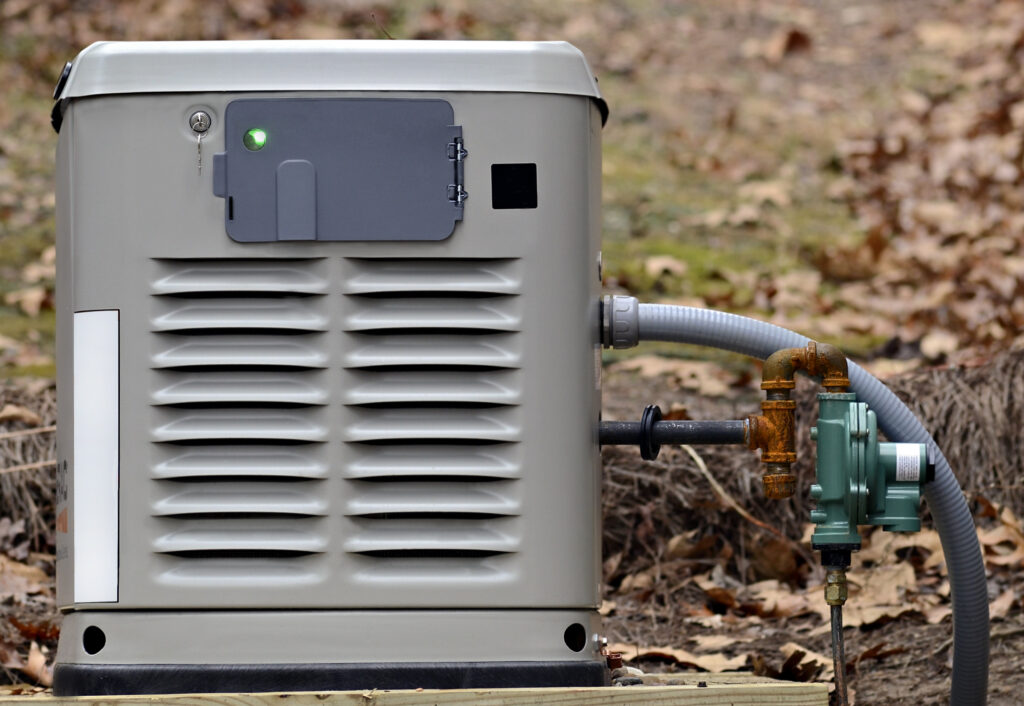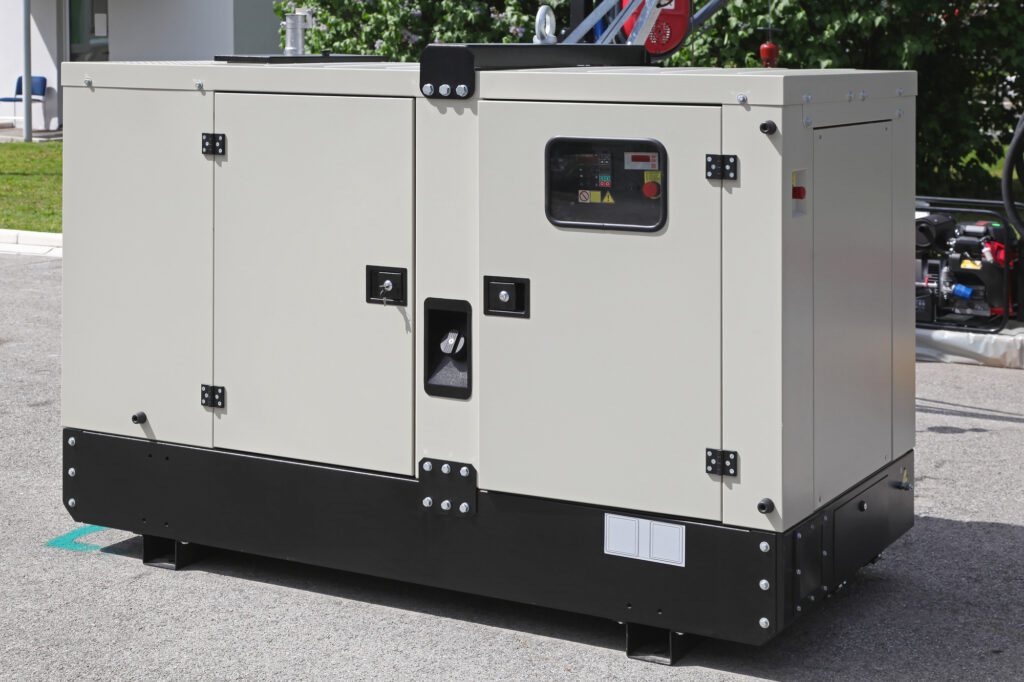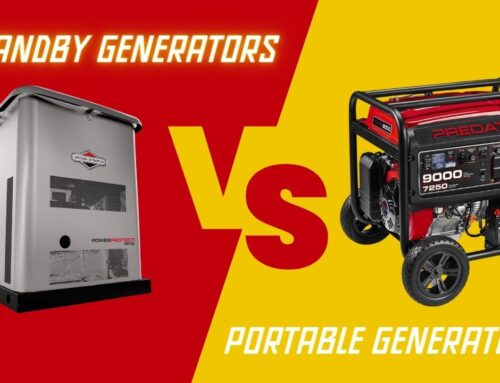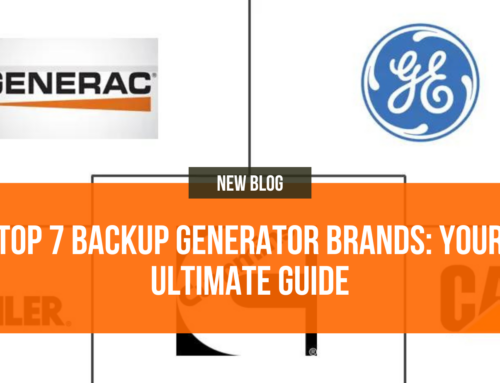Picture this: a massive storm causes a power outage in your area, and you’re left without electricity for hours or even days. In situations like these, having a reliable generator can be a lifesaver. However, choosing the right generator can be a daunting task, especially when it comes to selecting between air-cooled and liquid-cooled generators. In this blog post, we’ll delve into the differences between these two types of generators, their advantages and drawbacks, and the factors to consider when making your choice – “air cooled vs liquid cooled generators.”
Short Summary
-
- Air-cooled generators are suitable for residential applications, offer cost savings and portability, but may not work in hot climates.
-
- Liquid-cooled generators provide higher efficiency and power output with increased load capacity, but come at a higher price point and require more maintenance.
-
- When selecting between air or liquid cooled generators, factors such as usage, space, budget, and regional climate should be taken into consideration.
Understanding Air Cooled Generators

Air-cooled generators utilize air as a cooling medium to effectively dissipate the heat generated during operation. These generators are commonly found in residential settings and small commercial establishments. Air-cooled generators typically have a smaller engine size, ranging from one to two cylinders and less than one liter (1000cc).
Companies like Generac offer air-cooled generators with capacities up to 24kW.
Key Components
An air-cooled generator consists of several key components, including an internal combustion engine, an alternator, a cooling system, a voltage regulator, and a control panel. The cooling system is particularly crucial as it prevents overheating and consequent damage to the generator’s components by using a fan to force air over the engine.
The voltage regulator maintains a steady voltage output from the generator by controlling the current flow through the generator’s electrical system.
Benefits and Drawbacks
Air-cooled generators offer several benefits in comparison to liquid-cooled models. For instance, they don’t require any additional cooling systems. They are generally more cost-effective, require less maintenance, and are lightweight, making them more portable and suitable for transportation and storage. Air-cooled generators are highly efficient and well-suited for moderate climates where temperatures rarely exceed 100°F. However, their performance may suffer in hot climates, leading to overheating if used for extended periods under moderate to heavy loads.
Conversely, liquid-cooled generators offer superior power, efficiency, effectiveness, durability, reduced noise levels, and the ability to perform efficiently even in challenging and hot environments. However, they come with a higher price tag and require more maintenance.
Exploring Liquid Cooled Generators

Liquid-cooled generators, on the other hand, use a liquid (typically water or a combination of water and antifreeze) as a cooling agent to dissipate the heat generated during operation. These generators are often used for commercial purposes, as they have a power capacity range of 15kW for diesel and 22kW for natural gas or propane.
They offer increased efficiency, extended life expectancy, and amplified power output compared to air-cooled generators.
Essential Components
A liquid-cooled generator consists of an internal combustion engine, radiator, coolant pump, coolant reservoir, heat exchanger, and alternator. The radiator transfers heat created by the engine and generator components to the coolant. This coolant is then pumped back into the engine through the coolant pump. The coolant reservoir serves as a storage tank for the coolant, aiding in maintaining a consistent coolant level in the system and providing room for the coolant to expand and contract as it heats up and cools down.
The heat exchanger transfers heat from the coolant to another medium, such as air or water, thereby increasing the cooling efficiency of larger liquid-cooled generators.
Pros and Cons
Liquid-cooled generators are usually more costly and complex than their air-cooled counterparts due to their more intricate cooling system and additional upkeep requirements. Furthermore, a continuous supply of water or coolant is essential for the liquid cooling system, potentially making repairs more difficult in the event of a malfunction.
On the plus side, liquid-cooled generators are preferred in hot climates, like the desert Southwest, as air-cooled generators cannot run for extended periods of time before overheating and shutting down. Additionally, they are favored for commercial use due to their capacity to generate a higher amount of power and electricity.
Cooling Systems Compared: Air vs Liquid
The primary distinction between air-cooled and liquid-cooled generators lies in their cooling systems. Air-cooled generators use fans to dissipate heat from the engine, whereas liquid-cooled generators employ a coolant which is circulated through the engine block and a radiator to remove heat from the engine.
When comparing the two cooling systems, factors such as efficiency, power output, and lifespan come into play.
Efficiency and Power Output
Air-cooled generators typically have lower efficiency and power output compared to liquid-cooled generators. In moderate climates, air-cooled generators are highly efficient and well-suited for temperatures rarely exceeding 100°F. However, their performance may suffer in hot climates, leading to overheating if used for extended periods under moderate to heavy loads.
Liquid-cooled generators, on the other hand, offer higher efficiency and power output due to their more advanced cooling system. They can also manage larger loads, making them ideal for commercial applications.
Lifespan and Durability
In terms of lifespan and durability, liquid-cooled generators generally have a more extended lifespan compared to air-cooled generators. Their higher efficiency and capacity to withstand extreme temperatures make them more durable and reliable in various environments.
Air-cooled generators, on the other hand, may have a shorter lifespan due to their lower efficiency and power output. Their performance may also be affected by environmental conditions, such as high temperatures or water scarcity.
Capacity and Load Considerations
When it comes to generator capacity and load considerations, air-cooled generators should generally operate at no more than 80% of their rated capacity to prevent overheating.
Liquid-cooled generators, on the other hand, typically have a greater power capacity and can accommodate larger loads than air-cooled generators. The principal distinction between the two generator types in terms of capacity lies in their power output and ability to manage larger loads.
Cost Implications
Air-cooled generators typically range in price from $500 to $18,000, depending on size and type. Installation and maintenance costs may vary depending on the model and fuel type.
Liquid-cooled generators, on the other hand, are more expensive due to their complex cooling system compared to air-cooled generators. Although they offer higher power output and efficiency, their higher price tag and maintenance requirements should be taken into account when making a decision between the two types of generators.
Noise Levels and Portability

In terms of noise levels, air-cooled generators are generally louder than liquid-cooled generators due to the use of a fan to circulate air over the engine. They typically generate noise levels between 62 and 69 decibels at a distance of 21 feet, although the exact noise level may vary depending on the brand and model.
In contrast, liquid-cooled generators tend to produce less noise due to their more advanced cooling system. Portability is also a factor to consider, with air-cooled generators being lighter and more compact than liquid-cooled generators, making them easier to transport and store.
Making Your Choice: Factors to Consider
When deciding between air-cooled and liquid-cooled generators, several factors should be taken into account, such as power, usage, space, budget, and maintenance. Each generator type has its own set of advantages and drawbacks, and the choice ultimately depends on the specific needs and requirements of the user.
By considering factors such as power output, efficiency, lifespan, cost, noise levels, and portability, you can make an informed decision about which generator type is best suited for your needs.
Residential vs Commercial Applications
Residential applications may benefit from air-cooled generators due to their portability, lower cost, and lower noise levels. These generators are generally more suitable for smaller loads and are well-suited for moderate climates.
On the other hand, commercial applications often require higher power output and efficiency, making liquid-cooled generators a more suitable option. Liquid-cooled generators can manage larger loads and provide superior performance, making them ideal for commercial and industrial settings.
Climate and Environmental Factors
Climate and environmental factors should also be taken into account when choosing between air-cooled and liquid-cooled generators. In moderate climates, air-cooled generators can provide sufficient cooling and are more fuel efficient.
However, in hot climates or regions with water scarcity, liquid-cooled generators may be a more suitable option due to their increased efficiency and ability to withstand extreme temperatures.
Ultimately, the choice between air-cooled and liquid-cooled generators will depend on the specific climate and environmental conditions of the location where the generator will be used.
Summary
The choice between air-cooled and liquid-cooled generators depends on various factors such as power output, efficiency, lifespan, cost, noise levels, and portability. Air-cooled generators are generally more suitable for residential applications and moderate climates, while liquid-cooled generators are preferred for commercial applications and hot climates. By considering the specific needs and requirements of your application, as well as the climate and environmental conditions of your location, you can make an informed decision between air-cooled and liquid-cooled generators.
Ultimately, the right generator for you will depend on your unique needs and circumstances. By carefully evaluating the pros and cons of each type of generator and considering factors such as power output, efficiency, lifespan, cost, noise levels, and portability, you can make the best choice for your home or business. No matter which type of generator you choose, you’ll be better prepared for any power outage that may come your way.
Frequently Asked Questions
What are the advantages of a liquid-cooled generator?
Liquid-cooled generators offer a number of advantages over air-cooled models. Liquid cooling provides more efficient temperature regulation, enabling the engine to maintain its performance even at very high temperatures. Additionally, liquid cooling also requires less maintenance than air-cooled options.
These factors make liquid-cooled generators an ideal choice for many applications.
How long can you run an air-cooled generator?
You can typically run an air-cooled generator for up to 500 hours continuously, though you should refer to the manufacturer’s instructions for exact run times.
As a general rule of thumb, make sure to limit your run time to 6-18 hours when using a portable generator and 500 hours for standby generators.
How long can you run a liquid-cooled generator?
Liquid-cooled generators can run for days or weeks depending on the size of the fuel supply and how they are used. Larger tanks can store up to three days’ worth of fuel, with regular replenishment needed to sustain longer outages.
As such, you can reliably depend on liquid-cooled generators to power your home or business for extended periods of time.
If you’re looking for a local dealer or installer for either liquid cooled or air cooled standby generators, look no further than Power Generation Nation to find your perfect fit.





